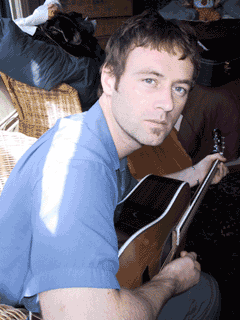There is an Isle

When I was back in Ireland recently, I visited some college friends in Limerick. As I pulled into the driveway, my friend's six year old son, Aran, was thumping a rugby ball over his house, a low bungalow. Then he would run to the back garden and kick it back over the house. It was obvious from his glistening face he had been at this for a while. As I got out of the car, he ran up to show me the Munster rugby team pin his dad had bought for him - a circle of blue and red on the lapel of his Republic of Ireland football jersey. The glow on his face wasn't just the result of his ball kicking, It was as much about pride as it was about exertion. Irish people are sports mad, even those who aren't, are well versed in team histories, old rivalries, and storied victories. However, Aran's generation is the first to grow up expecting their sportsmen and women to win, and win regularly. This is a sea change from the Ireland of my childhood. When I was growing up, victories were few and far between, and were celebrated to death. Munster's victory over the All Blacks in 1978 is the prime example (and after last Saturday, we can finally stop talking about that). We really didn't have many local sporting heroes. Ireland has always had great sporting talent, especially at football - but our infrastructure (outside of the formidable GAA), was minimal and amateurish. The best in sport, as in everything else, emigrated. As children, the closest we got to sporting heroes was collecting football trading cards with pictures of the Irish players who played in the English leagues. There was no professional football league in Ireland. There still isn't. The cards with pictures of George Best or Steve Heighway were prize possessions because not only were they great talents, they were Irish.
I was really young, but I do remember when Limerick won the 1973 All Ireland Hurling Final, and the excitement that surrounded it, (my grandparents had a picture of the winning team on their wall for over ten years afterwards), but I was a little too young to appreciate the victory. But, great as hurling is, (my favourite spectator sport), it's not an international sport. On that level, there was the occasional Olympic medal winner, but these weren't the same. Following a successful team meant you belonged to a tribe of winners. We didn't have those. Our lack of sporting success seemed an outward expression of the economic and social malaise that permeated Ireland in the 70's and 80's.
Everything changed with the Italia90 World Cup. I was in Hoboken, New Jersey, a summer J1-visa exile, when Ireland defeated Romania in that historic penalty shoot out. Finally, we were competing on the world stage. The world looked at us, and we looked at us, and for once, we liked what we saw. The Celtic Tiger was taking its baby steps.
Last Saturday, over six thousand miles from center stage, I gathered with some other ex pats, all Munster men, most from Limerick, to watch the Munster Rugby team win the Heineken Cup and become European champions. We would all have given anything to be back in Limerick celebrating. There was a lot of, "I must have a speck of dust in my eye", moments. I couldn't but wonder what Aran was thinking; I'm sure he was over the moon, his local team had won an international competition. More that that, he belongs to what maybe the most passionate supporters in European sport. While Munster is much more than my home town of Limerick, and many of the team are from Munster's largest city, Cork, Limerick and the Limerick supporters have been the focus of attention. Over the years, Limerick has received more than its fair share of negative attention. Maybe the positive press is an indication that the rest of Ireland might finally be understanding what Limerick people have known for some time - Limerick has been quietly changing. The insular defensive city, (literally, Limerick was surrounded by walls for most of its history) of the past is disappearing. Physically the city has changed and no longer turns its back on its most obvious feature, the river Shannon, where new development has replaced the decrepit old docklands. There is a new confidence in the old city, (its city charter is older than London's). The most obvious is the deep pride Limerick people take in Munsters historic victory. They deserve this. Maybe Aran's generation will leave "Stab City" behind - at long last.


0 Comments:
Post a Comment
Links to this post:
Create a Link
<< Home